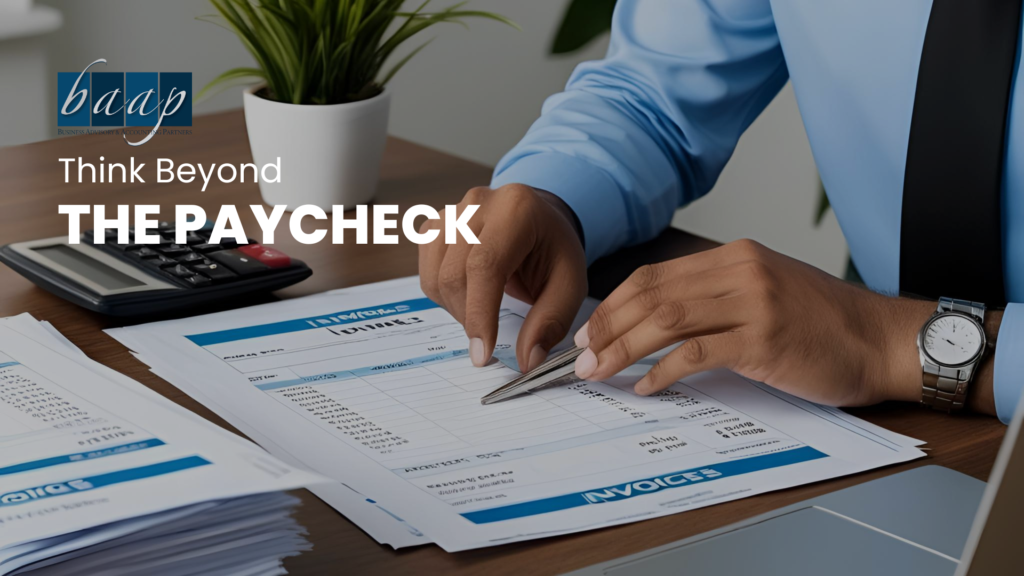
When most people launch a small business, they see it as a way to earn a living—to pay themselves a salary and generate income in the short term. But what if you approached your business not just as a job, but as a long-term business investment?
This shift in mindset can dramatically change how you operate, scale, and ultimately exit your business. Thinking like an investor, rather than just an owner-operator, is the key to improving profitability, growing long-term business value, and achieving financial freedom down the road.

Many entrepreneurs fall into the trap of treating their business like a personal ATM—pulling from the business bank account whenever cash is available, with little thought to what the business needs to sustain itself. But this short-term thinking can hinder business growth and leave owners unprepared when it’s time to step away.
As Mark Martukovich, CPA, explains, most business owners have the bulk—if not all—of their net worth tied up in the company. For some, it may represent 89% to 100% of their retirement asset. That’s why it’s crucial to treat your business like an appreciating asset, not just an income stream.
Every business owner dreams of one day executing a successful exit strategy—selling the company and walking away with enough to retire comfortably. But the reality is that many businesses are undervalued when it's time to sell. Often, there’s a gap between what the owner thinks it’s worth and what buyers are willing to pay.
To close that gap, owners need to understand what truly drives business value. This is where financial planning and expert advisory services come into play.

Depending on the industry, value is often tied to one of two primary metrics:
Businesses in many industries are valued based on a multiple of EBITDA (earnings before interest, taxes, depreciation, and amortization). If your business sells for 5x EBITDA, then increasing profitability is the fastest way to raise its value.
📌 If you’re within a 3-5 year window of selling, it’s critical to start maximizing profit now to command the best price later.
Some businesses, like insurance agencies, are valued based on top-line revenue. In these cases, increasing volume—regardless of short-term profit—may drive more value. This might mean acquiring new clients or even purchasing another book of business to boost your numbers.

Too many business owners delay planning for their exit strategy until it’s too late. A strong financial health profile takes years to build. That includes:
These elements don’t just boost value—they make your business more attractive and transferable to a buyer.
If you’re a business owner, your company is likely your most valuable asset. It deserves to be nurtured, structured, and grown with the same care you would give to any other investment. By taking a long-term view and seeking out professional advisory services, you’ll build a business that doesn’t just support your lifestyle now—but funds your legacy later.
👉 Ready to grow your business into a saleable asset? Work with a CPA who understands entrepreneurship, exit strategies, and building long-term business value.